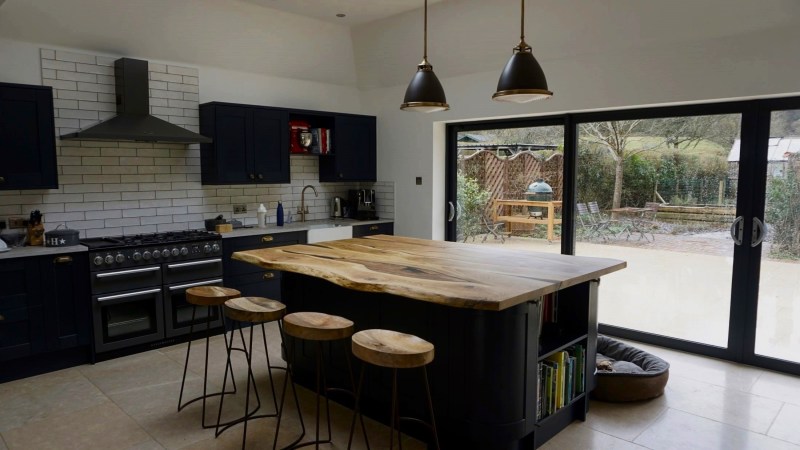Renovating a kitchen is a significant investment that can enhance both the functionality and aesthetics of one of the most important spaces in your home. Understanding the costs involved is crucial for effective budgeting and planning. This guide will break down the various factors that influence kitchen renovation costs, provide average price ranges, and offer tips on how to manage your budget effectively.
Factors Influencing Kitchen Renovation Costs
The cost of a kitchen renovation can vary widely based on several key factors:
1. Size of the Kitchen
The size of your kitchen is one of the most significant determinants of renovation costs. Generally, the larger the kitchen, the higher the costs will be. Here’s a breakdown of average costs based on kitchen size:
- Small Kitchen (<8 m²): $11,000 – $20,000
- Medium Kitchen (8-20 m²): $15,000 – $40,000
- Large Kitchen (20+ m²): $30,000 – $60,000+
These estimates can fluctuate based on the complexity of the renovation and the quality of materials chosen.
2. Scope of Renovation
The extent of the renovation also plays a critical role in determining costs. A simple cosmetic update, such as painting cabinets and replacing hardware, will be significantly less expensive than a full remodel that includes changing the layout, installing new cabinets, and upgrading appliances.
3. Quality of Materials
The choice of materials can dramatically affect your budget. High-end materials such as quartz countertops, custom cabinetry, and premium appliances can push costs up significantly. For instance, cabinetry alone can range from $5,000 for stock options to $30,000 or more for custom designs.
4. Labor Costs
Labor typically accounts for about 20-40% of the total renovation budget. This percentage can vary based on the complexity of the work and local labor rates. DIY projects can help reduce costs, but hiring professionals for specialized tasks (like plumbing or electrical work) is often necessary for safety and compliance reasons.
5. Location
Geographical location can influence both material and labor costs. Urban areas tend to have higher costs due to increased demand and living expenses. For example, homeowners in cities like Sydney may spend between $33,000 and $88,000 on a kitchen renovation, depending on their home’s value and the extent of the remodel.
Average Costs of Kitchen Renovations
To give you a clearer picture, here’s an overview of typical costs associated with various aspects of a kitchen renovation:
Cost Breakdown
| Item | Estimated Cost |
|---|---|
| Cabinets | $5,000 – $30,000 |
| Countertops | $2,000 – $10,000 |
| Appliances | $2,000 – $10,000 |
| Flooring | $1,500 – $5,000 |
| Lighting | $500 – $3,000 |
| Plumbing | $1,000 – $5,000 |
| Labor | 20-40% of total cost |
These figures provide a general guideline, but actual costs will depend on the specific choices you make.
Are you interested? Arrange a consultation.
Planning Your Kitchen Renovation Budget
1. Set a Realistic Budget
Before you begin, assess your finances and determine how much you can comfortably spend. A common recommendation is to allocate 3-8% of your home’s value for a kitchen renovation. This approach helps ensure that you don’t overspend and that your investment will add value to your home.
2. Prioritize Your Needs
Identify what aspects of your kitchen are most important to you. Are you looking for more storage, better lighting, or modern appliances? Prioritizing your needs can help you allocate your budget more effectively.
3. Get Multiple Quotes
When hiring contractors, obtain multiple quotes to ensure you’re getting a fair price. This practice can help you understand the market rate for labor and materials in your area.
4. Consider DIY Options
If you’re handy, consider taking on some of the work yourself, such as painting or installing hardware. This can significantly reduce labor costs. However, be cautious with tasks that require professional expertise, such as electrical or plumbing work.
5. Plan for Contingencies
Unexpected expenses often arise during renovations. It’s wise to set aside an additional 10-20% of your budget for unforeseen costs. This cushion can help you avoid financial stress if issues arise.
Conclusion
Renovating a kitchen can be a rewarding yet costly endeavor. By understanding the factors that influence costs, setting a realistic budget, and planning carefully, you can create a beautiful and functional kitchen that meets your needs without breaking the bank. Whether you opt for a simple update or a complete remodel, being informed and prepared will help ensure a successful renovation project.
Are you interested? Arrange a consultation:
-
The Pros and Cons of Granite Worktops: Is It the Right Choice for You?
Thinking about updating your kitchen? Granite worktops are a popular choice for many homeowners. But are they the right fit for your home? Let’s explore the good and…
admin
-
How to Choose the Perfect Granite Worktop for Your Kitchen
Choosing the right granite worktop for your kitchen can be an exciting but challenging task. With so many options available, it’s important to consider various factors to ensure…
admin
-
Combining Wooden Worktops with Other Materials: A Design Guide
Wooden worktops bring warmth and natural beauty to any kitchen. But combining them with other materials can take your kitchen design to the next level. In this guide,…
admin
-
The Pros and Cons of Wooden Worktops in the Kitchen
Wooden worktops have been a popular choice in kitchens for many years. They bring a warm, natural look that many homeowners love. But like any material, wood has…
admin
-
How to Choose the Right Wood for Your Kitchen Worktop
Choosing the perfect wood for your kitchen worktop is an important decision that can greatly impact the look and functionality of your kitchen. At SJ KITCHENS, we understand…
admin
-
The Timeless Appeal of Wooden Worktops in Modern Kitchens
Wooden worktops have been a staple in kitchens for centuries, and their popularity shows no signs of waning. In fact, they’re experiencing a resurgence in modern kitchen designs.…
admin





